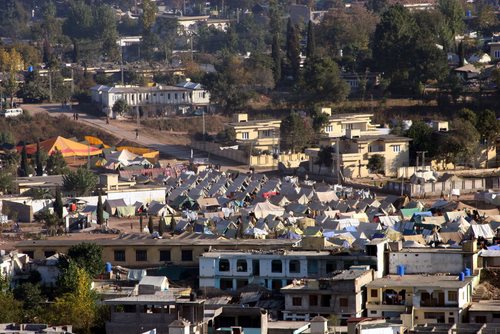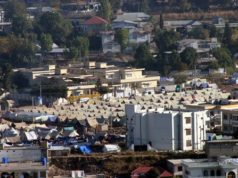
Refugees: The Urgent Need for Global Attention and Support
The term refugee is widely known in the world today due to its relevance and presence in almost every country. A refugee is a person who is forced to leave their home country due to persecution, war, conflict, violence, or any other crises. By definition, a refugee is someone who has been granted asylum or is waiting for their application to receive a decision on their status. Over the years, refugees have been able to flee their home countries in large numbers for various reasons and have settled in different parts of the world.
The refugee crisis is not a new phenomenon, but it has become more pressing and complex in recent times. The world is currently witnessing a large-scale displacement of people from different regions, with some leaving their homes willingly while others are forced to by situations beyond their control. The refugee crisis in many parts of the world today is a result of different issues ranging from political instability, economic crises, religious tensions, wars, and conflicts.
The United Nations defines refugees as people who have fled their homes and countries to escape war, persecution, or natural disaster. According to the latest statistics from the UN Refugee Agency (UNHCR), there are currently around 26 million refugees globally. These are people who have been pushed out of their homes, most of whom are women and children, and are now living in crowded camps, makeshift shelters, or other inadequate living conditions in several countries worldwide.
The History of Refugees
People have been fleeing wars, persecution, and natural disasters since ancient times. In ancient Rome and Greece, people were forced to flee their homes due to political instability, social crises, and religious persecution. Similarly, the Jewish people who were enslaved and persecuted under the Pharaoh of Egypt fled the country and sought refuge in the Sinai Desert. The Bible speaks about the exodus of the Israelites, who were fleeing persecution, and how Moses led them.
Refugee crises have happened many times throughout history. In the 16th and 17th centuries, refugees in Europe fled religious persecution and sectarianism. During World War II, the world witnessed the largest forced migration of people in history, as millions of people were displaced from their homes. The United Nations was founded following this global conflict, with one of its primary objectives being to ensure the protection of human rights and promote the welfare of refugees.
In the aftermath of World War II, there were massive refugee movements worldwide. Millions of people were displaced from their homes and forced to flee across borders in search of safety. The United Nations responded by creating the UNHCR, in December 1950, to help people forced to flee their homes. Ever since then, the UNHCR has been dedicated to protecting refugees, promoting their rights, and providing them with vital assistance.
Current Situation and Trends
The current refugee crisis is entirely different from that of earlier times, as it involves numerous and complex challenges due to global immobility, urbanization, economic challenges, political instability, and numerous conflicts. The situation is further exacerbated by climate change, which has resulted in droughts, desertification, and other environmental crises. Many people, especially those in developing countries, such as Syria, Venezuela, Sudan, South Sudan, and Yemen have been forced to leave their homes within the past decade or so.
According to the UNHCR, around 11.2 million people became newly displaced in 2019. Of these, 4.5 million people are asylum seekers awaiting a decision on whether they will receive refugee status. The 2019 numbers bring the total number of forcibly displaced people worldwide to 79.5 million as of December 2019. This includes 26 million refugees, 45.7 million internally displaced people, and 4.2 million asylum seekers.
The displaced populations are usually concentrated in countries close to the crisis region, which often puts pressure on their economy, social services, and limited resources. For instance, neighboring countries to Syria, such as Lebanon, Jordan, and Turkey, host the highest number of refugees within their borders globally. This has led to increasing social and economic pressure on these countries, having to host large numbers of refugees.
Reasons for Displacement
Many different factors lead to the displacement of people, including war, persecution, conflict, natural disasters, and economic problems. In some cases, displacement is a combination of these factors. However, war is the primary cause of displacement globally, accounting for 70 percent of all new displacement in 2019.
Conflict-Related Displacement: According to the Global Peace Index, there were 21 active Armed conflicts globally in 2020. This number shows a steady trend of increase since 2015, where there were 11 active conflicts worldwide. The most significant conflict-causing displacement in 2019 took place in Syria, South Sudan, Venezuela, and Afghanistan.
Forced Evictions: Forced evictions are another significant cause of displacement. Evictions often happen in informal settlements, with poor living conditions, and limited access to basic services. Such evictions force people to leave their homes and lose everything.
Environmental Degradation: Climate change and environmental degradation are also driving people to flee their homes. Droughts, desertification, and natural disasters such as floods, wildfires, and hurricanes are causing people to leave their homes. For instance, sea-level rise, ocean acidification, glacial melting, and other effects of climate change have forced people to move from coastal areas.
People Trafficking and Smuggling: People trafficking and smuggling have also contributed to the displacement of people. Traffickers and smugglers often force people into slavery or forced labor or bring them into the country illegally under dangerous and inhumane conditions. Once in the receiving country, most of these migrants find themselves in irregular situations and face multiple challenges, including discrimination, loss of identity, and lack of access to basic services.
The Effects of Displacement
Being forced to leave home and become a refugee is one of the most traumatic experiences a person can go through. Displacement often leads to families and communities being torn apart, impoverishment and deprivation, and a greater risk of disease, violence, and exploitation.
For instance, refugees are at a higher risk of physical and mental health problems. They often face a lack of access to basic services like healthcare, education, and shelter. The impact of displacement on children can be particularly severe, especially when they are separated from their families or forced to witness violence and conflict.
Displacement also has significant social and economic impacts on host communities. Local authorities are often under pressure to provide basic services, infrastructure, and jobs to refugees and other displaced people who often outnumber the host population. This can cause social and economic tension and discrimination towards refugees.
The Need for Support
Providing support to refugees and other displaced people is essential to address the challenges they are facing and help them thrive. The international community, including governments, civil society, and the private sector, must come together to provide support and assistance to refugees.
The UNHCR and other organizations are currently leading the efforts to assist refugees and provide them with aid. The UNHCR coordinates and facilitates the provision of humanitarian aid to those in need. They provide basic necessities like shelter, food, water, and medical care. In addition, they provide education and training, including language learning, to help refugees to integrate into their new communities.
Governments and international organizations must work together to provide solutions to the refugee crisis. They must ensure that refugees are treated humanely and given access to basic services like healthcare, education, and shelter. This requires providing financial support to host countries that are directly addressing the crisis. It also requires providing support to countries of origin, which are grappling with conflicts, poverty, and other causes of displacement.
Conclusion
The refugee crisis has become one of the most significant humanitarian challenges of our time. Millions of people are fleeing their homes due to conflict, persecution, environmental and social crises, and instability. The crisis is complex and multifaceted, and it requires a coordinated approach from governments, international organizations, and civil society.
We must address the root causes of the crisis, reduce the impact of conflicts and natural disasters, and provide support to those forced to flee their homes. As a global community, we must ensure that refugees receive the protection, safety, and basic services they need to rebuild their lives and contribute to their new communities. As long as the refugee crisis persists, it will remain a challenge to global peace and stability. Therefore, it is imperative that we do everything we can to address these challenges and support refugees worldwide.
Refugees, as defined according to a United Nations Convention Relating to the Status of Refugees, are individuals who are not within their home countries due to a credible fear of remaining within those home countries. Refugees are often individuals how have sought or been granted asylum and sanctuary within another country, but not always, as it is possible for a refugee to be an individual who simply is not in his or her home country for the reason of a credible fear of being in that home country.
A credible fear of being in a home country must be based on some criterion as determined by the same convention. For example, an individual who was afraid of returning to his or her home because a war was raging within that country would have a legitimate, credible fear of returning home, and thus would be considered an official refugee.
According to current estimates, there are close to 62 million refugees in the world today, over half of whom are not in their home countries as a result of wars in those countries. There are some disagreeing bodies, however, which instead argue that the number of refugees in the world is substantially lower than the above figure, as the exact number of refugees is sometimes difficult to pin down when refugees simply walk across borders and do not make their presence explicitly known to the government of the nation to which they are fleeing. The legal notion of a refugee is an important one for understanding international relations in the world today.





















